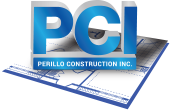A construction project manager’s role begins with the same skills as other project management careers including the initiation, planning, execution, performance/monitoring, and completion/closure. Of course, at that point, the similarities between the role of a construction project manager and other project management positions end. A construction project manager demands extensive expertise and knowledge of the construction industry, which offers a number of unique, complex challenges. It has been estimated that construction project managers are responsible for more than 100 duties on any given project. In and of itself, that means working strategically in an everchanging environment to get the project completed successfully.
Construction project managers must see that every partner on the project, from architect to contractor, to supplier is always on schedule and within the designated budget. In order to do so, construction project managers must streamline the process using the strategies and tools available.
Communication is Key
In order to see the project to successful completion, construction project managers must begin each project with effective communication flow among every member of the team. Every phase of the construction project requires ongoing communication from preparation to completion. Open communication lines encourage transparency, reducing the number of calls, texts, and emails should a problem arise during the project. There are a number of construction work management (CWM) tools available to construction project managers which allow real-time synchronization of project news, important comments, addendums, schedules, budgets, and more. When utilized properly, construction PMs will gain the time needed to coordinate the upcoming stage of the work.
Planning is an Ongoing Process
Planning for a Construction Project Manager begins prior to the actual construction and continues through the development phases, revisions, through to final completion. Each phase requires wide range planning which continually have the potential for revision. Design changes, environmental issues, budget concerns, and more can affect the build. Construction Project Managers work with experienced professionals – engineers, electricians, plumbers, carpenters, etc. – and their challenge is keeping the experts on focus and working harmoniously throughout the project even when delays and other issues arise.
On the Job and Seeking Solutions
Construction Project Managers are nearly always on the job site, coming alongside and working with the team members exerting the attention and integration required to complete the project successfully. Seeing the issues on site mean faster and more effective solutions. Construction PMs know the construction site, the duties of every professional on the project, the latest equipment and practices. Education must be ongoing for a construction project manager to successfully administer the project.
Monitoring Tools and Budgets
Bids, permits, workers, equipment, materials, and every financial aspect of the construction process must be monitored by the construction project manager working alongside accountants to ensure accuracy. This process requires the use of a good construction work management software package to manage costs and stay on budget. In addition, an effective WWM aids not only in administering financials, but also in reporting. Construction project managers utilize these tools to ensure the effective distribution of needed status reports, spreadsheets, safety reports, and more to arrive at the successful completion of the project.
From communication to planning to providing solutions to monitoring tools and encouraging collaboration, construction project managers work continually from planning to project completion, juggling more than 100 duties and responsibilities.

